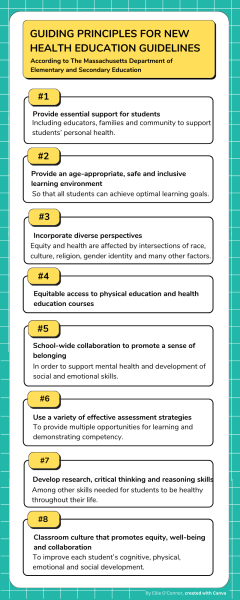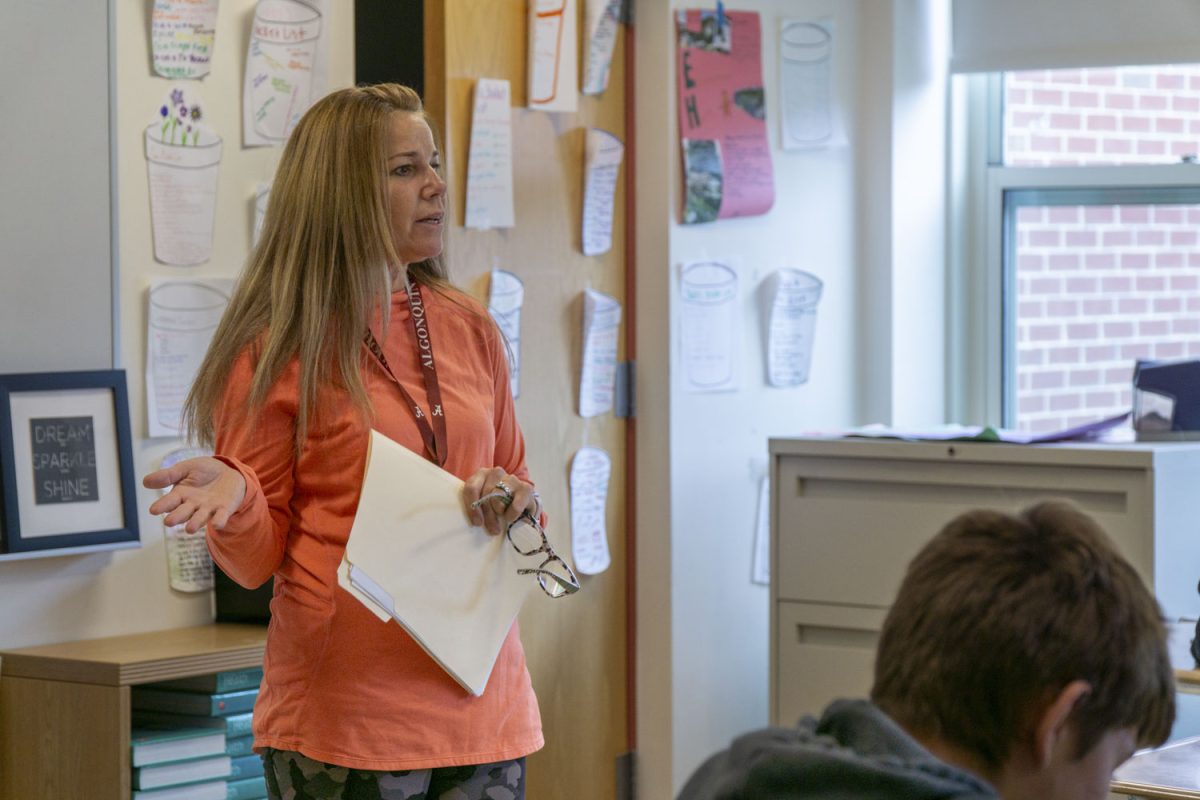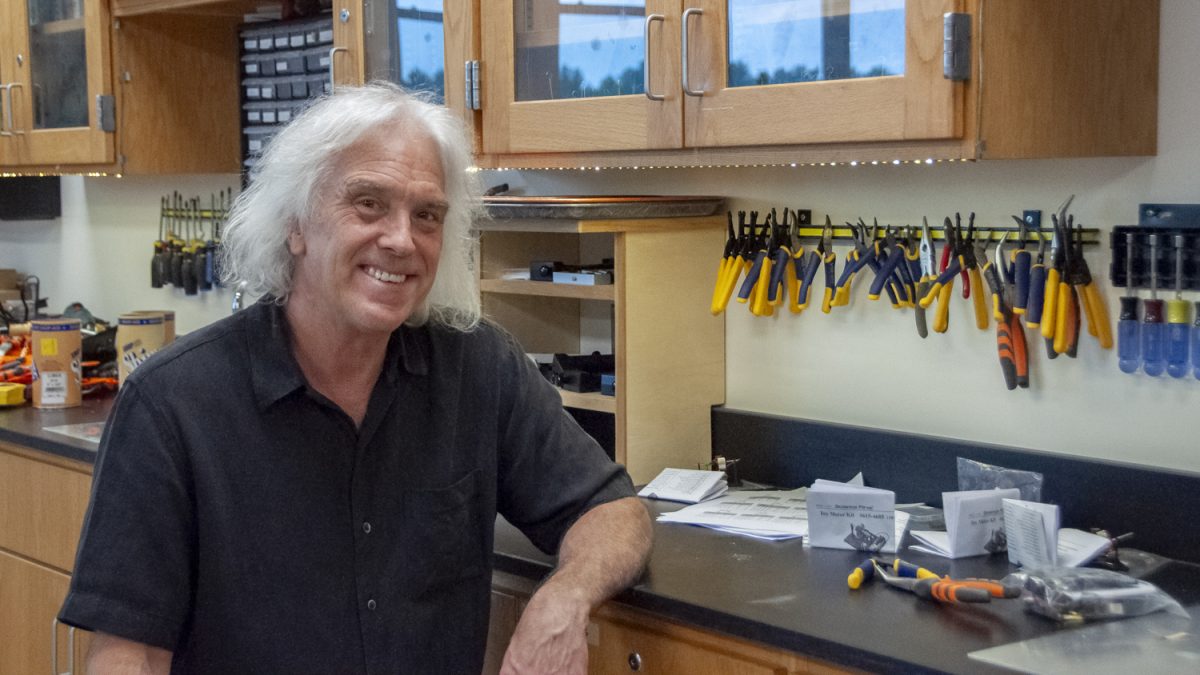The Massachusetts Department of Elementary and Secondary Education has taken the initiative to update the Health and Physical Education Framework in the curriculum for the first time since 1999; Health and Fitness teacher Melissa Arvanigian was chosen to be on the committee that helped revise the frameworks.
The new guidelines are encouraged to be implemented for all age groups, from pre-K through grade 12, and intend to emphasize gender identity, sexual orientation, healthy relationships, mental health and overall wellness. Schools across the state may choose to opt in, as the updates are not part of a required curriculum. Arvanigian was chosen to be on the board in 2019 to help revise the frameworks, along with 38 other professionals.

“Upon helping revise these frameworks, we felt it was really important to bring our health and fitness classes in the curriculum up to the 21st century,” Arvanigian said.
The revised standards include more information regarding diversity in both sex and gender identity, and especially hope to be inclusive and equitable.
“[We were] really focusing a lot on the social, emotional learning,” Arvanigian said. “The tie between how important it is to have a healthy student, socially and emotionally, meeting everybody where they’re at, not just a certain demographic or a certain type of student, but every student.”
Part of the reasoning for the updates was that the old guidelines contained out-of-date terminology that no longer supported shifting ideas on gender identity and sexual identity, among other topics. Health and Wellness Coordinator and Nurse Director Maryellen Duggan believes the new guidelines are much more effective.
“Across the board, I think it’s thinking about long-term health literacy,” Duggan said. “How are we going to create students that are able to care for themselves long-term, be healthy and remain healthy throughout their lifetime and give them those skills?”
The committee was not limited to just the teachers and nurses; it also included college professors, superintendents and organizations from around Massachusetts. The committee met for eight hours, once a month, for an entire year.
“The group that worked together on this, we’re really proud of what we put together,” Arvanigian said. “We put a lot of heart and soul into this and we were all selected for different reasons because we all have our own expertise. So, it wasn’t just all teachers, it was so many different educators and professionals.”
In the past, Arvanigian has worked with other districts to help update their health and sex education guidelines, so in 2019 she was enthusiastic to apply for the position on the committee. Additionally, she has included these principles in her own health curriculum for years.
“I’ve always tried to stay with the times as an educator,” Arvanigian said. “It would be a disservice to my students if I didn’t do my own research, my own learning outside of my classes.”
The Northborough-Southborough district hopes these new alterations will allow students to be both physically and mentally healthy. According to Duggan, creating a holistically healthy student is something that all members of the faculty play a role in.
“I think that the nurses do play a key role as well as the counselors, as well as adjustment counselors, guidance counselors, school psychologists, health educators and PE teachers,” Duggan said. “It’s a team effort.”
In current news across the country, there has been some fear around health education that includes topics of gender and sexuality. Arvanigian hopes that people can see how the new updates in Massachusetts are a positive and necessary change.
“It’s not just about sexual education, it’s about so much more,” Arvanigian said. “I think people get nervous, certain people get nervous, when they think it’s just new sex-ed requirements. It’s not new, it’s just updated. It’s about health, wellness and fitness.”












